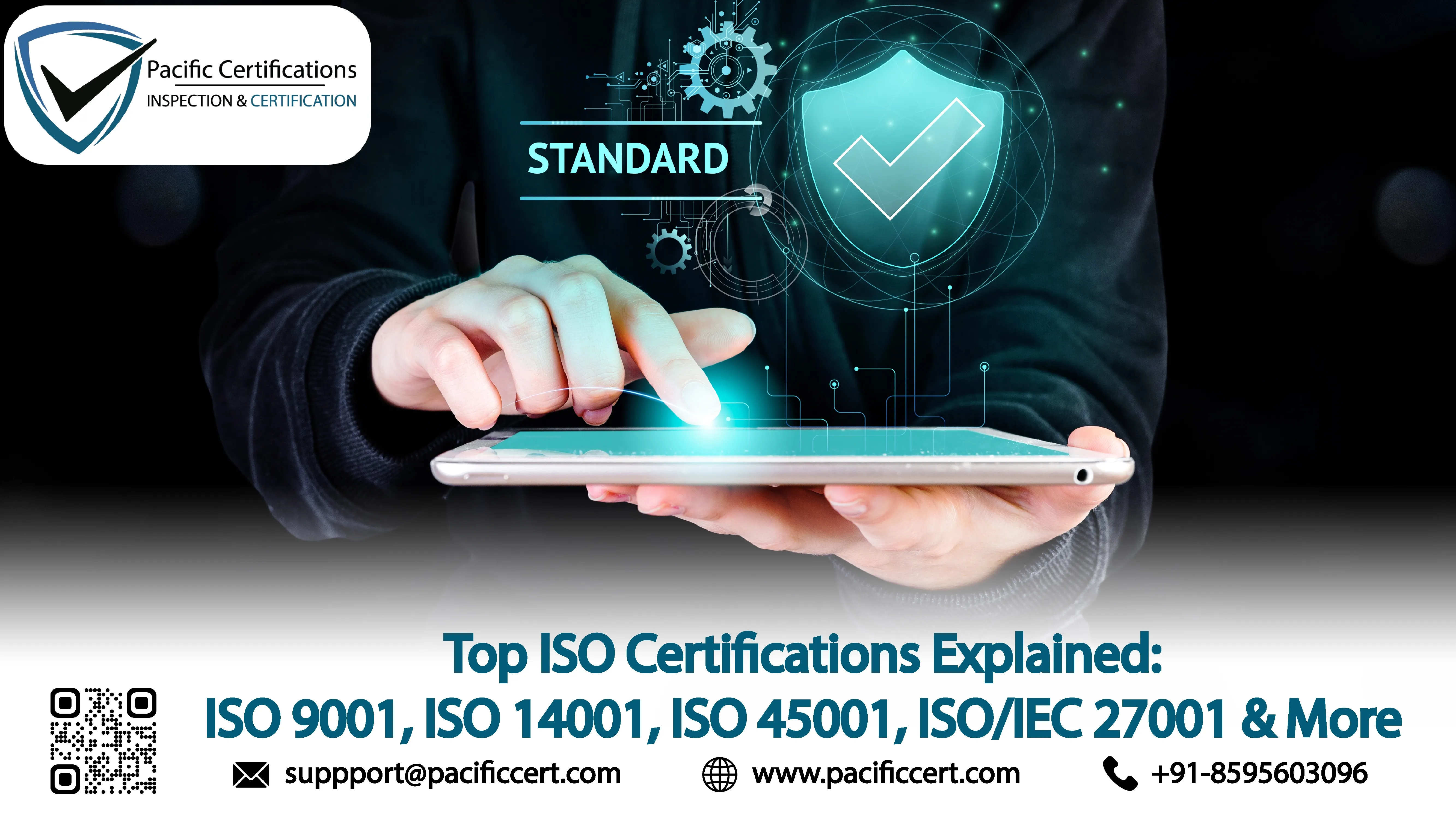Top ISO Certifications Explained: ISO 9001, 14001, 45001 & 27001
Introduction
In today’s fast-paced business environment, organizations strive to manage quality, environment, safety and information security — often all at once. The quartet of ISO 9001, ISO 14001, ISO 45001 and ISO/IEC 27001 are among the most recognized and applied international standards. But what does each one cover, and when should a company adopt them?
What Each Standard Covers?
-
ISO 9001 (Quality Management Systems): Focuses on delivering products and services that consistently meet customer expectations and regulatory requirements. It emphasizes process control, corrective actions, customer feedback, and continual improvement.
-
ISO 14001 (Environmental Management Systems): Helps organizations manage their environmental responsibilities through reduced waste, better resource use, legal compliance and lower emissions.
-
ISO 45001 (Occupational Health and Safety): Aims to protect employees and other stakeholders from work-related injury or ill health, by establishing safe work practices, hazard identification, risk mitigation and continual evaluation.
-
ISO/IEC 27001 (Information Security Management Systems): Addresses the protection of information assets by establishing a systematic approach to managing risks, access controls, incident response, business continuity, and security governance.
Key Requirements Across the Standards
While each standard has its unique clauses, they share several structural and functional requirements:
-
Defining scope, context, leadership commitment, policies and objectives
-
Identifying and analyzing risks, and determining how to treat them
-
Documenting processes, controls, and responsibilities
-
Training and competency for staff
-
Monitoring, measurement, internal audits, corrective actions
-
Management review and continual improvement
-
Maintaining records and documented information
Because these standards share a common high-level structure (Annex SL), they are designed to be compatible and integrated.
Benefits of Certification
-
Stronger credibility among clients, regulators, investors and stakeholders
-
Enhanced operational consistency and process efficiency
-
Better environmental performance, reduced resource use and waste
-
Safer working environments and fewer incidents
-
Improved information security, minimized data breach risk
-
Market differentiation and alignment with global best practices
How Pacific Certifications Can Assist?
Pacific Certifications offers accredited audits and certifications for these key ISO standards. We help you choose which standards to adopt, integrate multiple systems, conduct gap analyses, train teams, prepare documents and guide you through the audit process — all while maintaining high standards of rigor and transparency.
Read more: Top ISO Certifications Explained: ISO 9001, 14001, 45001 & 27001

Comments
Post a Comment